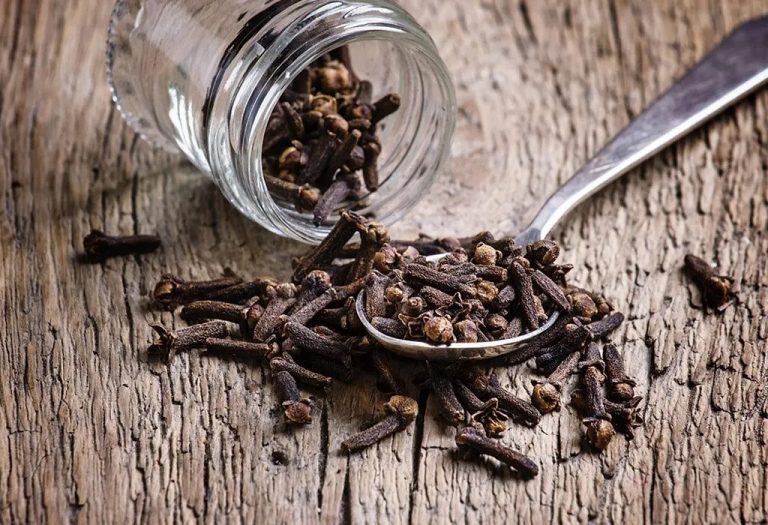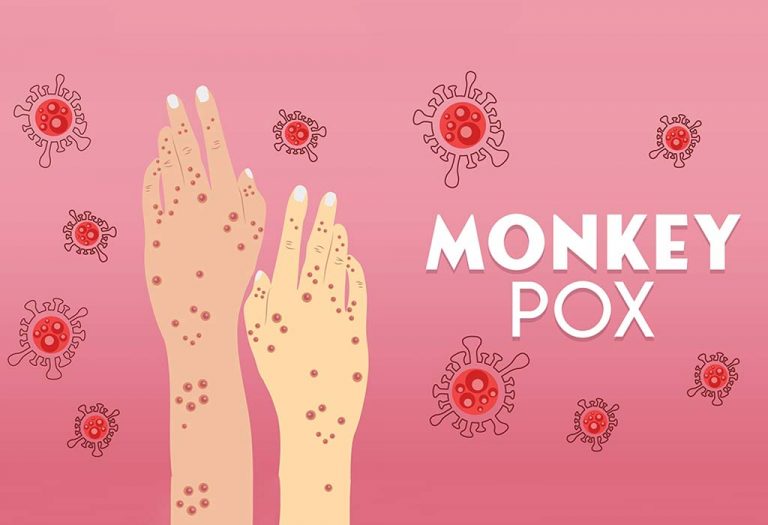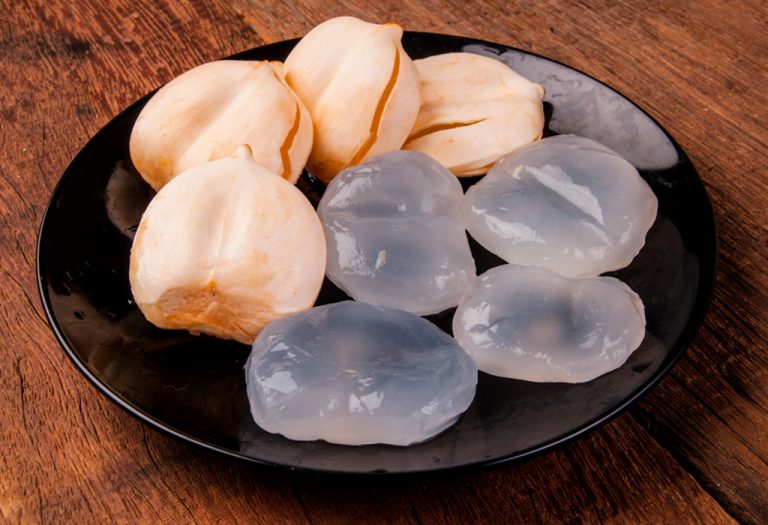Consuming Cloves during Pregnancy – Is It Harmful?

- Is it Safe to Eat Cloves During Pregnancy?
- Health Benefits of Consuming Cloves During Pregnancy
- Are There Any Side Effects of Consuming Cloves While Pregnant?
- Precautions to Take
- Ways to Use Cloves During Pregnancy
- FAQs
Pregnancy is a special time, and you want to be sure that whatever you eat is perfectly safe and will not harm your baby’s health and development. Therefore, it is wise to consider and scrutinise all that you eat.
Cloves are an aromatic and flavorful spice popular in various food preparations, such as aromatic dishes, puddings, and baked goods. They are also widely used for their medicinal properties. Cloves are used in multiple forms, including oil, stems, leaves, and dried florets, each with unique uses and benefits. They can also be a flavorful addition to meals. However, it’s essential to use them in moderation and avoid overindulging. This article examines the benefits and potential risks of consuming cloves in pregnancy.
Is it Safe to Eat Cloves During Pregnancy?
According to experts, cloves are safe to consume during pregnancy when flavouring food. This means you can safely add them to your food in small doses, in whole or powdered form. However, using clove oil and clove enhancements when pregnant may be unsafe and is best avoided (1). You may also want to avoid using cloves for medical reasons, like treating toothaches, colds, and coughs.
Cloves and pregnancy may not be a damaging combination perse, but it is always sensible to consult your doctor first in case of any doubt. Your doctor is better positioned to evaluate your health and suggest accordingly.
Health Benefits of Consuming Cloves During Pregnancy
Cloves can have numerous health benefits if added to the pregnancy diet in limited amounts. Some of them are listed below:
1. Aids Muscle Strengthening
Cloves provide a small amount of Vitamin E, which is vital for muscle building (2).
2. Assists Bone Development
Cloves supply small amounts of calcium and phosphorus to the body for your baby’s bone development, which is especially required during pregnancy (3).
3. Activates Cell Repair and Boosts Immunity
Cloves contain antioxidants, which help activate the cell repair system and strengthen the immune system (4) by developing the body’s resistance against infections during pregnancy.
4. Promotes Foetal Growth
Cloves are a good source of minerals like sodium, manganese, and phosphorus, which are helpful for babies’ proper growth (5).
5. Combats Digestive Ailments
Cloves’ dietary fibre can help keep your bowels in order and combat digestive issues like indigestion and constipation, common complaints during pregnancy (6).
6. Promotes Foetal Brain and Nervous System Development
Cloves contain many omega-3 fatty acids, which may help promote the proper development of a baby’s brain and nervous system (7).
7. Relieves Aches and Pains
Cloves contain flavonoids, which have anti-inflammatory properties. These can help ease pregnancy-related aches and pains (8).

8. Relieves Respiratory Ailments
Clove is often used whole in brewed teas, in oil form, or chewed whole to relieve respiratory ailments such as cough, cold, throat inflammation, bronchitis, sinusitis, and asthma (9).
9. Provides Energy
Research has shown that clove regulates genes that promote energy metabolism, which refers to generating energy from nutrients (10).
10. Reduces Risk of Diabetes
A study has detected that the polyphenols found in clove extract can help metabolise glucose and reduce the risk of diabetes (11).
Are There Any Side Effects of Consuming Cloves While Pregnant?
While cloves are usually considered safe as food ingredients, they may have some side effects, mainly if they are used as clove oil or supplements.
1. May Induce Premature Labour
If ingested in large quantities, clove oil can stimulate the uterus and cause contractions. This can lead to premature labour.
2. Cause Allergic Reactions
Cloves can cause allergic reactions, including skin irritation from topical application of clove oil, which can be dangerous when pregnant.
3. May Lead to Serious Health Risks with Excess Consumption
Over-consumption of cloves may lead to intestinal bleeding, breathing troubles, diarrhoea, seizures, increased mouth sensitivity, abdominal pain, nausea, vomiting and even liver or kidney failure in extreme cases.
Precautions to Take
Though cloves offer several health benefits, taking certain precautions to prevent pregnancy complications is still best. The following points may be kept in mind:
-
Applying clove oil to the skin during pregnancy may be avoided. Studies suggest clove oil can harm skin cells and increase skin sensitivity, resulting in rashes and burns.
-
Refrain from using clove oil to treat toothaches and other ailments during pregnancy.
-
It is wise to consume cloves in limited measures during pregnancy. Overdose should be avoided.
-
Dilute clove oil with a carrier oil if using while pregnant
-
Consult your doctor on the recommended dosage that is acceptable during each trimester.
Ways to Use Cloves During Pregnancy
When used in moderation, cloves can relieve various ailments and boost immunity. The following are some of how you can safely use cloves during pregnancy:
- Sprinkle a tiny amount of clove powder into oatmeal or other meals to add flavour to your dish while being beneficial to your baby and you
- Steep cloves with any herbal tea you prepare, strain and enjoy! This is one of the best ways to consume cloves while pregnant.
- Although clove oil is generally not recommended for use while pregnant, it can be a good source of headache relief. Dilute the oil with a carrier oil and apply it to the back of the neck or inhale through a diffuser. To avoid an allergic reaction, avoid using it on the temples and forehead.
- Chew raw, whole cloves to relieve indigestion and throat congestion.
FAQs
1. Can pregnant women drink clove tea?
Yes, a mild clove tea for pregnancy is an excellent way to reap the benefits of cloves. It can relieve aches and pains and boost immunity and overall health. Steep it in herbal tea and consume it to get the most out of cloves!
2. Is it safe to drink clove water during pregnancy?
Clover water for pregnancy is safe if consumed in limited amounts after consulting a doctor. It is best to dilute it before consumption.
Using clove for pregnancy is beneficial when consumed in moderation. If any doubts persist, it is always sensible to seek medical consultation. After all, it is better to be safe than sorry.
References/Resources:
1. Clove Oil; Medicines; https://www.medicines.org.uk/emc/files/pil.4817.pdf
2. Labazi, M., McNeil, A.K., Kurtz, T., Lee, T.C., Pegg, R.B., Angeli, J.P.F., Conrad, M., and McNeil, P.L.; The antioxidant requirement for plasma membrane repair in skeletal muscle; Free Radic Biol Med; https://pubmed.ncbi.nlm.nih.gov/25843658/; July 2015
3. Karmakar, S., Choudhury, M., Das, A.S., Maiti, A., Majumdar, S., and Mitra, C.; Clove (Syzygium aromaticum Linn) extract rich in eugenol and eugenol derivatives shows bone-preserving efficacy; Nat Prod Res; https://pubmed.ncbi.nlm.nih.gov/21711176/; 2012
4. Farias, P.M., Marcelino, G., Santana, L.F., de Almeida, E.B., Guimarães, R.C.A., Pott, A., Hiane, P.A., and Freitas, K.C.; Minerals in Pregnancy and Their Impact on Child Growth and Development; Molecules; https://www.ncbi.nlm.nih.gov/pmc/articles/PMC7730771/; November 2020
5. Batiha, G.E., Alkazmi, L.M., Wasef, L.G., Beshbishy, A.M., Nadwa, E.H., and Rashwan, E.K.; Syzygium aromaticum L. (Myrtaceae): Traditional Uses, Bioactive Chemical Constituents, Pharmacological and Toxicological Activities; Biomolecules; https://www.ncbi.nlm.nih.gov/pmc/articles/PMC7072209/#B51-biomolecules-10-00202; January 2020
6. Coletta, J.M., Bell, S.J., and Roman, A.S.; Omega-3 Fatty acids and pregnancy; Rev Obstet Gynecol; https://www.ncbi.nlm.nih.gov/pmc/articles/PMC3046737/; 2010
7. Vicidomini, C., Roviello, V., and Roviello, G.N.; Molecular Basis of the Therapeutical Potential of Clove (Syzygium aromaticum L.) and Clues to Its Anti-COVID-19 Utility; Molecules; https://www.ncbi.nlm.nih.gov/pmc/articles/PMC8036487/; March 2021
8. Yang, J., Ueharu, H., and Mishina, Y.; Energy metabolism: A newly emerging target of BMP signaling in bone homeostasis; Bone; https://www.ncbi.nlm.nih.gov/pmc/articles/PMC7423769/; September 2020
9. Mohan, R., Jose, S., Mulakkal, J., Karpinsky-Semper, D., Swick, A.G., and Krishnakumar, I.M.; Water-soluble polyphenol-rich clove extract lowers pre- and post-prandial blood glucose levels in healthy and prediabetic volunteers: an open label pilot study; BMC Complement Altern Med; https://pubmed.ncbi.nlm.nih.gov/31064377/; May 2019
Black Peeper while Pregnant
Cinnamon during Pregnancy
Consuming Ajwain in Pregnancy
Introducing Mushroom in Pregnancy
Was This Article Helpful?
Parenting is a huge responsibility, for you as a caregiver, but also for us as a parenting content platform. We understand that and take our responsibility of creating credible content seriously. FirstCry Parenting articles are written and published only after extensive research using factually sound references to deliver quality content that is accurate, validated by experts, and completely reliable. To understand how we go about creating content that is credible, read our editorial policy here.




































